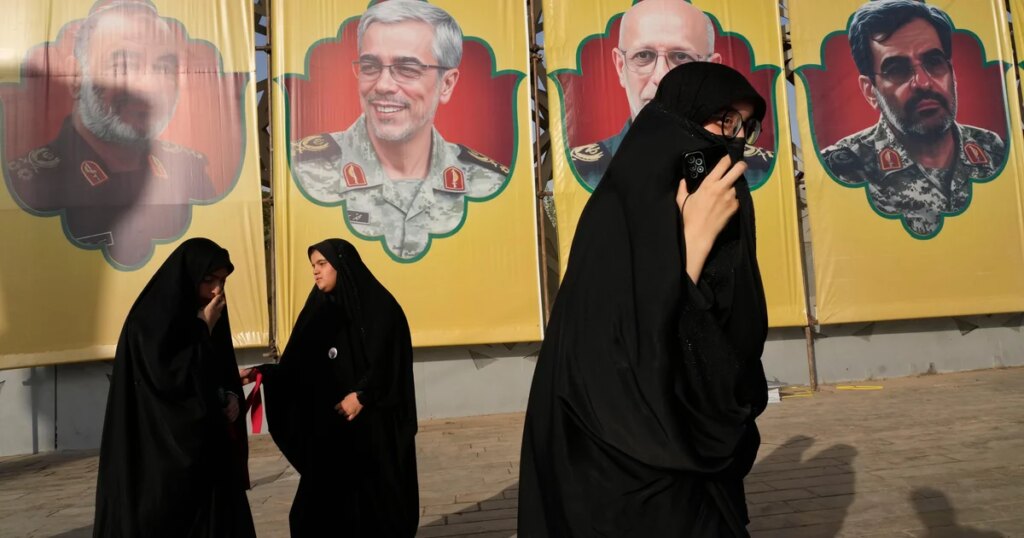On Saturday, Iran executed six death-row inmates in a contentious move, claiming they had conducted attacks linked to Israel in the country’s resource-rich Khuzestan province. This decision falls within a broader trend of escalating executions in Iran, raising concerns among human rights activists regarding the methods used to secure convictions. Following the recent 12-day conflict with Israel, Iranian authorities have pledged to deal harshly with perceived threats both domestically and internationally.
| Article Subheadings |
|---|
| 1) Overview of the Executions |
| 2) Background on Iran’s Judicial Practices |
| 3) Reactions from Human Rights Organizations |
| 4) Ethnic and Political Context |
| 5) Implications of Recent Trends |
Overview of the Executions
Iran asserted that the executed individuals were responsible for attacks which included killings of police and security forces, as well as orchestrated bombings in the oil-producing city of Khorramshahr. The Iranian state media has portrayed these executions as a necessary action in the ongoing fight against what it describes as threats to national security. The footage broadcasted showed one of the accused recounting the allegations, a move critics argue further highlights the lack of transparency in judicial processes.
Background on Iran’s Judicial Practices
The death penalty in Iran has been a contentious issue, particularly regarding the alleged use of tortured confessions to secure convictions. Activists have raised concerns over the fairness of trials, especially in cases involving political dissent, where defendants are often deprived of legal representation and subjected to closed-door proceedings. The Hengaw Organization for Human Rights reported that the men executed were all identified as “Arab political prisoners” detained during protests that erupted in 2019.
Reactions from Human Rights Organizations
Critics, including independent human rights experts at the United Nations, have condemned Iran’s execution practices. The increased rate of executions this year has drawn widespread condemnation, with some groups estimating over 1,000 executions so far, the highest rate observed in decades. According to the Center for Human Rights in Iran, many of these actions lack the transparency and due process expected under international human rights laws.
Ethnic and Political Context
The Arab minority residing in Khuzestan province has historically faced discrimination and marginalization from the Iranian government. This has fueled resentment and calls for greater political rights within the region, contributing to a backdrop of unrest. The political climate has been exacerbated in recent years by widespread protests against economic issues and government repression, leading to increased crackdowns by Iranian authorities.
Implications of Recent Trends
The recent surge in executions represents a troubling trend for human rights in Iran and raises significant questions about the future of civil liberties in the country. Analysts suggest that the government’s intensified focus on punitive measures can be seen as an effort to consolidate power and deter further dissent amid ongoing protests. The lack of accountability for these actions also poses a challenge for human rights advocates seeking to bring global attention to the issue.
| No. | Key Points |
|---|---|
| 1 | Six inmates were executed by Iran, accused of attacks connected to Israel. |
| 2 | Human rights activists claim the judiciary relies on coerced confessions. |
| 3 | The executions reflect a wider crackdown on dissent amid national protests. |
| 4 | Iran’s Arab population has faced discrimination and political repression. |
| 5 | The current rate of executions is the highest seen in decades. |
Summary
The recent executions in Iran illustrate a concerning trend in human rights violations amid a climate of oppression and political dissent. With ongoing protests and a noticeable uptick in executions, the Iranian government’s approach to dissent raises critical questions about the future of justice and transparency within its judicial system.
Frequently Asked Questions
Question: Why were the six individuals executed in Iran?
The six individuals were executed after being accused of carrying out violent attacks on behalf of Israel, including the killing of police officers and orchestrating bombings in Khuzestan province.
Question: What methods did Iran reportedly use to secure confessions from the accused?
Reports indicate that the accused were subjected to severe torture and coerced into giving televised confessions, often under duress.
Question: What has been the international community’s response to Iran’s execution practices?
Human rights organizations and independent experts from the United Nations have condemned Iran’s execution practices, calling attention to the lack of due process and transparency in the judicial system.


